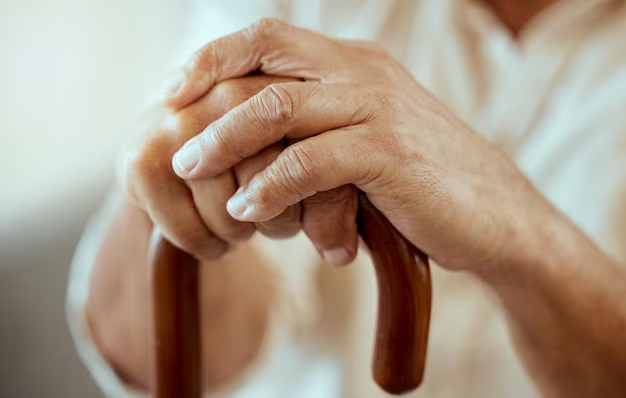Your Guide to Can Women Get Parkinson's
What You Get:
Free Guide
Free, helpful information about Parkinsons FAQ and related Can Women Get Parkinson's topics.
Helpful Information
Get clear and easy-to-understand details about Can Women Get Parkinson's topics and resources.
Personalized Offers
Answer a few optional questions to receive offers or information related to Parkinsons FAQ. The survey is optional and not required to access your free guide.
Can Women Develop Parkinson’s Disease? Here’s What You Need to Know
Parkinson’s disease, often associated with tremors and movement difficulties, is a progressive neurological disorder affecting the brain’s ability to control movement. While some might wonder if this condition targets men more than women, the truth is Parkinson’s disease can indeed affect women. Although research suggests men are more likely to develop Parkinson’s, about 40% of Parkinson's patients in the United States are women, underscoring the importance of acknowledging and addressing this disease across genders.
Understanding Parkinson’s in Women
The symptoms of Parkinson’s in women are generally similar to those in men, including:
- Tremors: A common symptom seen as involuntary shaking or trembling.
- Rigidity: Stiffness in limbs and torso.
- Bradykinesia: Slowness of movement.
- Postural Instability: Balance and coordination challenges, increasing the risk of falls.
Interestingly, research indicates women may experience different progression rates or non-motor symptoms, potentially complicating standard diagnosis and treatment approaches. Women tend to be diagnosed at a slightly older age compared to men and may experience mood disorders more prominently.
Navigating Life with Parkinson’s
Living with Parkinson’s necessitates a multifaceted approach, blending medical intervention with lifestyle modifications. Here are some supportive measures:
- Medication: Levodopa is commonly prescribed to manage symptoms. However, women must consult with their healthcare provider to tailor a treatment plan suiting their specific needs.
- Therapy: Physical, occupational, and speech therapy can aid in managing movement issues, daily tasks, and communication challenges.
- Lifestyle Adjustments: Regular exercise, a balanced diet, and adequate sleep can enhance quality of life.
Seeking Financial Support
Facing Parkinson’s often brings financial considerations, such as medical expenses and modifications for safer living conditions. Here are some pathways to explore for financial relief:
Government Aid Programs
- Social Security Disability Insurance (SSDI): If Parkinson’s impacts the ability to work, SSDI offers monthly payments to support daily living costs.
- Medicaid and Medicare: Programs that can cover medical expenses, including doctor visits and medication costs.
Financial Assistance and Debt Relief
- Patient Assistance Programs: Pharmaceutical companies provide financial aid or discounted rates for medications, helping offset the cost burden.
- Debt Management Plans: Tailored solutions to restructure debt, ensuring medical expenses don’t compromise financial stability.
Educational Grants and Resources
- Continuing Education Grants: For those opting to pivot careers post-diagnosis, education grants support skill building and new career paths.
- Resources from Parkinson’s Organizations: Non-profits often offer educational materials and support networks for patients and caregivers.
Taking proactive steps in managing Parkinson’s, from understanding symptoms to seeking financial help, can empower women to lead fulfilling lives despite the challenges of this disease. Below is a compilation of potential financial assistance programs and resources designed to ease the journey:
🔹 SSDI: Monthly financial aid for those unable to work due to Parkinson’s.
🔹 Medicare: Covers medical expenses, including medications and therapy sessions.
🔹 Medicaid: Assists low-income individuals with healthcare access.
🔹 Pharmaceutical Assistance: Check with drug manufacturers for discounts or free medication programs.
🔹 Parkinson’s Foundations Resources: Offers educational materials and support for managing the disease.
🔹 Continuing Education Grants: Available for career changes or skill enhancement.
🔹 Debt Management Plans: Customized solutions to manage and reduce debt effectively.
Addressing Parkinson’s disease with an informed, strategic approach can make a significant difference in managing both health and financial challenges. Stay informed, seek support, and ensure a proactive stance in navigating life with Parkinson’s.
What You Get:
Free Parkinsons FAQ Guide
Free, helpful information about Can Women Get Parkinson's and related resources.

Helpful Information
Get clear, easy-to-understand details about Can Women Get Parkinson's topics.

Optional Personalized Offers
Answer a few optional questions to see offers or information related to Parkinsons FAQ. Participation is not required to get your free guide.


Discover More
- Are There Environmental Causes Of Parkinsons
- Can Alcohol Cause Parkinson's
- Can Concussions Cause Parkinson's
- Can Concussions Cause Parkinson's Disease
- Can Dogs Get Parkinson's Disease
- Can Dogs Get Parkinsons
- Can Dogs Have Parkinson's
- Can Dogs Have Parkinson's Disease
- Can Females Get Parkinson Disease
- Can Head Trauma Cause Parkinson's
